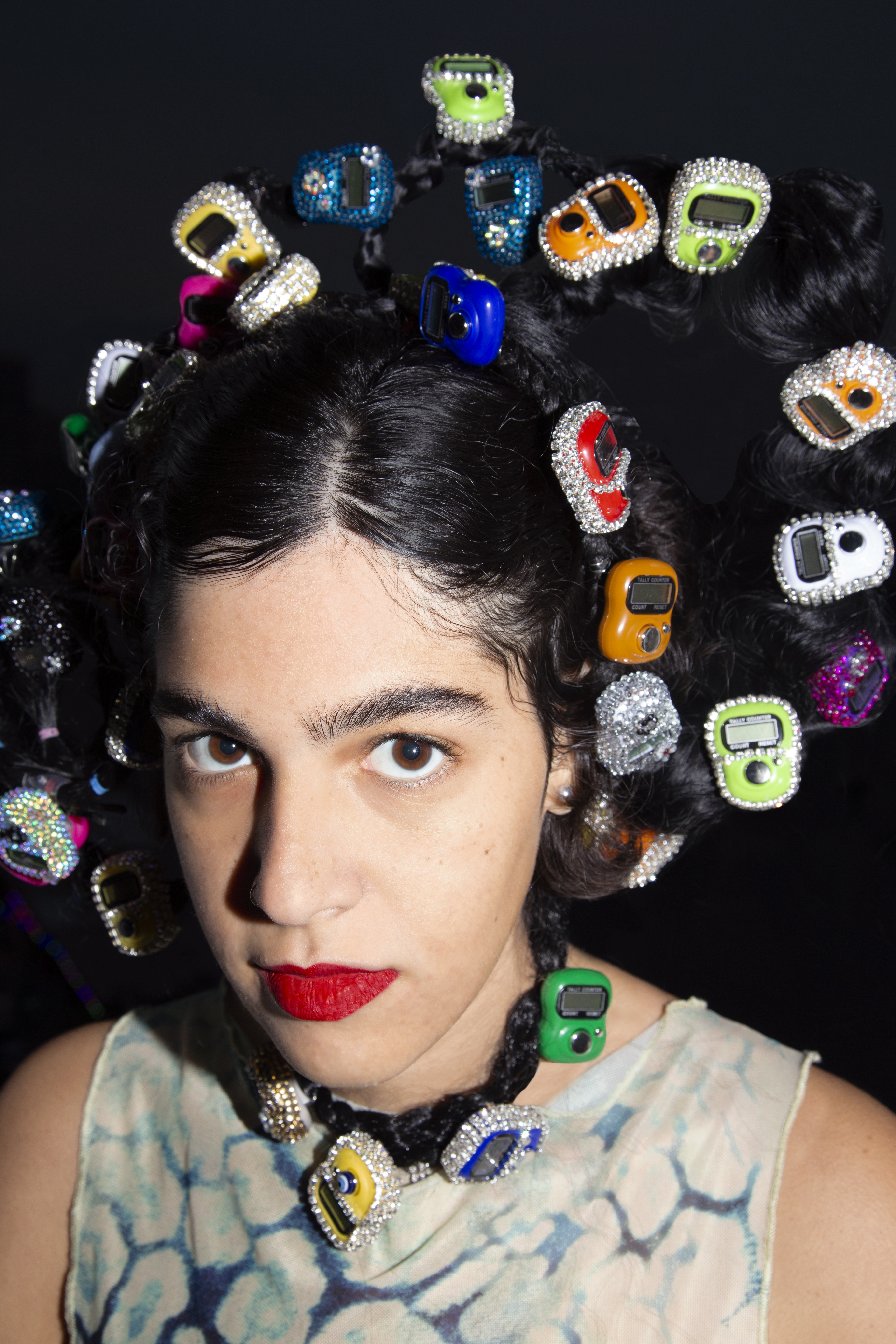Vanities
Vanities


























As I walked through Berlin, I stumbled upon a party decoration shop with a Kaaba balloon in its display window. I felt an urge to buy it, anticipating that sooner or later, someone would deem it blasphemous and it would disappear. But weeks passed, and it remained. Eventually, I bought one, unsure of its fate, only to discover, amidst Christmas ornaments, New Year’s streamers, Halloween props, and Valentine’s hearts, that there was an entire aisle dedicated to "Muslim" decorations. I had to suppress my laughter, but something about it felt unsettling. It wasn’t that I was unfamiliar with these traditions. I had grown up religious, I was a practicing Muslim. Yet, something about encountering a Ramadan advent calendar in a Berlin grocery store struck me with the same eerie feeling. It wasn’t about celebration, it was about consumption. Islam was being repackaged, commercialized, turned into yet another seasonal trend. It had become a market, another lucrative demographic to tap into. Curious, I began looking for other “religious” products on the market. My algorithm quickly caught on, feeding me endless suggestions, hundreds of Pinterest posts advertising "Muslimah Essentials”, among them: matcha lattes, pastel-colored Qurans, and bejeweled digital rosaries (aka Zikr Rings). Islam had become an aesthetic, faith was being sold in shades of pink and gold, wrapped in glitter and packaged for consumption.
No one truly needs a Kaaba chocolate assortment box, a Quran and Zikr Ring matching gift set, Zamzam water-infused eyeliner, or "Ruqyah Paper" to ward off magic or the evil eye. When did we allow capitalism to monopolize spirituality? When did our individualistic desires infiltrate our religious practices? Islam, at its core, emphasizes humility and detachment from material excess, in the way we fast, in the way we give charity, in the way we are buried. So how has overconsumption, the very antithesis of these values, become so unquestioned? Islam is not the next self-care trend, nor is it the next yoga globalization. I speak from experience, as someone who once used a Zikr Ring, I can say that all it did was make me obsessive, fixated on numbers, competing with myself to reach higher counts, mistaking quantity for devotion. Online, I see the same pattern, people publicly sharing their daily Duaa or Zikr counts, turning spirituality into a numbers game. When faith becomes something to display and measure, we rupture our connection to its essence. Over the course of a month, I documented and recontextualized many (though not all) of these so-called "religious products" in an attempt to spark a conversation. One day, when I was buying an “Allah” necklace, the seller opened up and said it felt weird he was making profit out of the name of God. I want to challenge how normalized these objects have become in our daily lives and how they trivialize spiritual practice. No one needs a commercial product to practice their faith. If anything, these objects offer a moment to interrogate capitalism’s pervasive grip and reflect on how deeply consumer culture has seeped into our systems, even into the spiritual.
No one truly needs a Kaaba chocolate assortment box, a Quran and Zikr Ring matching gift set, Zamzam water-infused eyeliner, or "Ruqyah Paper" to ward off magic or the evil eye. When did we allow capitalism to monopolize spirituality? When did our individualistic desires infiltrate our religious practices? Islam, at its core, emphasizes humility and detachment from material excess, in the way we fast, in the way we give charity, in the way we are buried. So how has overconsumption, the very antithesis of these values, become so unquestioned? Islam is not the next self-care trend, nor is it the next yoga globalization. I speak from experience, as someone who once used a Zikr Ring, I can say that all it did was make me obsessive, fixated on numbers, competing with myself to reach higher counts, mistaking quantity for devotion. Online, I see the same pattern, people publicly sharing their daily Duaa or Zikr counts, turning spirituality into a numbers game. When faith becomes something to display and measure, we rupture our connection to its essence. Over the course of a month, I documented and recontextualized many (though not all) of these so-called "religious products" in an attempt to spark a conversation. One day, when I was buying an “Allah” necklace, the seller opened up and said it felt weird he was making profit out of the name of God. I want to challenge how normalized these objects have become in our daily lives and how they trivialize spiritual practice. No one needs a commercial product to practice their faith. If anything, these objects offer a moment to interrogate capitalism’s pervasive grip and reflect on how deeply consumer culture has seeped into our systems, even into the spiritual.
Commissioned by Stereo. Full story in Arabic here.
© 2025 Najla Said. All rights reserved.
All images are the property of Najla Said and may not be reproduced, copied, or used without written permission.
